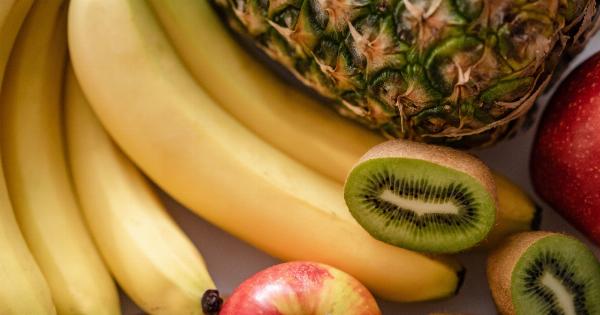Gymnastics is a demanding sport that requires strength, flexibility, and endurance. To meet the physical demands of training and competition, gymnasts need to fuel their bodies properly.
Food and fasting play a crucial role in optimizing their metabolism and performance. In this article, we will explore how nutrition and fasting can impact gymnastics and provide insights into the ideal dietary strategies for gymnasts.
The Importance of Metabolism in Gymnastics
Metabolism refers to the chemical processes that occur within living organisms to maintain life. In the context of gymnastics, metabolism determines how efficiently the body converts food into energy to be used for physical activity.
A well-functioning metabolism is vital for gymnasts as it directly affects performance, body composition, and recovery.
Energy Requirements for Gymnasts
Gymnasts engage in intense physical activity that requires high energy output. The energy requirements for gymnasts vary depending on factors such as age, sex, weight, training intensity, and duration.
On average, female gymnasts require 2,000-3,500 calories per day, while male gymnasts need around 3,000-4,500 calories per day to meet their energy needs.
The Role of Carbohydrates
Carbohydrates are the primary source of energy for gymnasts. During physical activity, the body breaks down carbohydrates into glucose, which fuels the muscles and brain.
It is essential for gymnasts to consume an adequate amount of carbohydrates to sustain their performance and prevent fatigue. Good sources of carbohydrates include whole grains, fruits, vegetables, and legumes.
The Importance of Protein
Protein plays a crucial role in gymnastics as it is essential for muscle growth and repair. Gymnasts put significant stress on their muscles during training and competitions, making protein intake an important aspect of their diet.
Lean meats, fish, poultry, dairy products, and plant-based protein sources such as beans and tofu are excellent choices for gymnasts to fulfill their protein requirements.
Hydration and Performance
Proper hydration is crucial for gymnasts to maintain optimal performance. Dehydration can lead to decreased coordination, reduced strength, and impaired cognitive function.
Gymnasts should aim to drink adequate water before, during, and after training sessions or competitions to prevent dehydration.
Timing of Meals and Snacks
The timing of meals and snacks can have a significant impact on gymnasts’ energy levels and performance.
It is beneficial for gymnasts to consume a balanced meal consisting of carbohydrates, protein, and healthy fats 2-3 hours before training or competition. Additionally, consuming small, nutrient-rich snacks before and after workouts can help maintain energy levels and aid in recovery.
The Role of Fasting in Gymnastics
Intermittent fasting has gained popularity in recent years, with various claimed benefits. However, its suitability for gymnasts is subjective and depends on individual factors such as training intensity, age, and overall health.
Fasting for extended periods without proper supervision can lead to inadequate fueling, impaired recovery, and decreased performance. It is essential for gymnasts to consult with a sports nutritionist or healthcare professional before incorporating fasting into their routine.
Optimizing Recovery through Nutrition
Recovery is a vital component of successful gymnastics training. Consuming a combination of carbohydrates and protein after a workout or competition can help replenish glycogen stores, repair muscle damage, and enhance recovery.
Foods such as chocolate milk, yogurt, nuts, and fruits can provide the necessary nutrients for optimal recovery.
The Role of Supplements
While a well-balanced diet should provide all the necessary nutrients for gymnasts, some may choose to incorporate supplements to support their performance and recovery.
However, it is crucial to consult with a sports nutritionist or healthcare professional to ensure the safety and effectiveness of any dietary supplements.
Conclusion
Nutrition plays a vital role in the performance and overall health of gymnasts. Proper fueling through a well-balanced diet is essential to optimize the metabolism, enhance performance, and aid in recovery.
It is crucial for gymnasts to prioritize their nutrition and work closely with a sports nutritionist to create an individualized plan that meets their energy needs and specific goals.




























